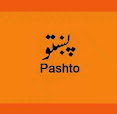Steeped in classical flavor of Urdu traditional poetry, Mohsin Naqvi's poetry pulsates with the resistant themes he lived through. He had been engaged on various fronts, political, religious, sectarian, literary, against various detractors. His poetry resonates with all these tensions, making it strident and forceful. The very choice of his words evokes the passions he has been grappling with.<br />In the book reviewed here, Reiza-e-Harf (The Crumb/s of Letters/words) all these traits of his poetry are reflected. Nostalgia for the past times, friends, lands, beloveds and the elegiac lamentation of the ordeals his compatriots has been going through are the simmering themes of this collection. Penned some years before his death, this collection is eerily prescient, talking of the lurking assassinators, the waiting gallows, the curbs on speaking the truth. But beside these resistant themes, all the traditional themes of Eastern poetry also suffuse his poems and ghazals in a poignant and potent voice. All the colors of love, beauty of the beloved, aching despairs of unrequited love seethe in his poetry. And added to all this, Naqvi's diction, his inimitably apposite choice of words shows that his art is deeply anchored in the classic heritage of Urdu poetry.
<br/><br/>
<a href="https://www.goodreads.com/review/list/18074344-aslam-mir">View all my reviews</a>












